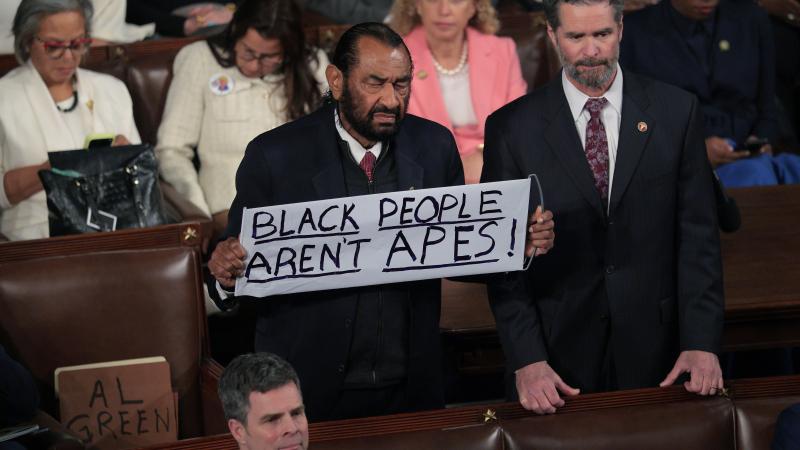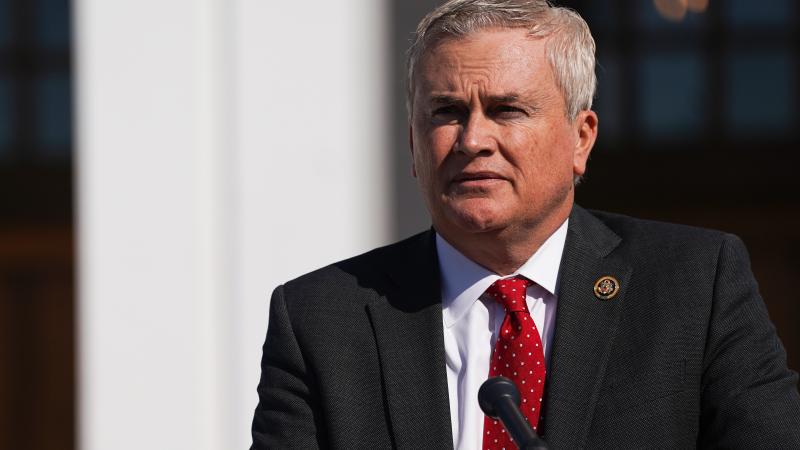Trump lays out plan addressing policing, school choice, minority economic and healthcare issues
As the president continues to carefully weigh the options of a police reform bill, GOP lawmakers have begun drafting their own legislation to counter the sweeping bill presented by the Democrats
President Trump at a roundtable meeting on Thursday laid out a four-part plan in response to calls for police reform, that touches upon several areas including economic and healthcare issues for American minorities, policing and school choice.
“First we’re aggressively pursuing economic development in minority communities,” the president at the event in Texas. “At the heart of this effort is increasing access to capital for small businesses, and that’s with minority owners in black communities,” the president explained at the roundtable titled "Transition to Greatness: Restoring, Rebuiling and Renewing."
Trump also said the plan tackles “healthcare disparities, including addressing chronic conditions and investing substantial sums in minority-serving medical institutions.”
The next point of the plan involves an executive order related to policing, an issue which has recently become a topic of significant discussion in the wake of George Floyd’s death.
“Third, we’re working to finalize an executive order that will encourage police departments nationwide to meet the most current professional standards for the use of force, including tactics for de-escalation. Also, we’ll encourage pilot programs that allow social workers to join certain law enforcement officers so that they work together,” Trump said.
The president also called for Congress to take action on school choice, noting that “access to education is the civil rights issue of our time.”
President Trump was expected Thursday to publicly address White House plans for police reform when he visited with law enforcement officers and black faith leaders in Dallas.
White House press secretary Kayleigh McEnany had since Wednesday downplayed the possibility that Trump would dive into specifics and must-haves but has signaled he'll make clear the direction in which he and his advisers are heading.
Trump has held at least two roundtable meetings on the issue, since George Floyd died May 25 after an arrest by Minneapolis police in which an officer kneeled on Floyd's neck until he lost consciousness.
Still, the White House has signaled that Trump appears to be looking for holistic approach that goes beyond standard criminal justice reform to include build better relationships between police forces and members of the community.
The president has received some criticism for being slow to respond to the questions of police reform following Floyd's death, which sparked nationwide protests.
House Democrats, with support from Senate colleagues, have already introduced a bill. And Senate Republicans, including Sen. Tim Scott, the only black member of the chamber's GOP conference, are working on several of their own.
Scott told reporters Wednesday that the Senate is "on a separate track from the White House," though later in the day White House Chief of Staff Mark Meadows, senior adviser Jared Kushner, and adviser Ja'Ron Smith met with Scott at the Capitol to discuss the legislation.
We're still wrestling with America's original sin. We try to get better, but every now and then it's perfectly clear we're a long way from the finish line," said Senate Majority Leader Mitch McConnell said Tuesday.
The White House has made clear earlier this week that several elements of the House Democrats' bill, released Monday, were "nonstarters" for the president. In particular, the idea of ending or limiting-qualified immunity for law enforcement officers, which some Senate Republicans have said they would consider as part of their legislation.
Rep. Jim Jordan, an Ohio Republican and vocal Trump ally, says he will soon be releasing his own police reform bill.
Jordan is the ranking member on the House Judiciary Committee, which held a hearing Wednesday to gather information about police practices. During his opening statement, Jordan made clear that he disagrees vehemently with any suggestion that involves defunding or abolishing law enforcement offices around the country.
He said of the bill his Democratic colleagues introduced earlier in the week: “They know it is pure insanity to defund the police. And the fact that (they) won’t speak out against this crazy policy is just that frightening.”
The Democrats' plan calls for banning the use of chokeholds and no-knock warrants in drug cases by police officers. It also suggests limiting the legal provision – or qualified immunity – that can shield police officers from civil suits.
There are, however, several potential areas of agreement between GOP lawmakers and the Democratic caucus. Both parties appear to be in support of placing some sort of ban on the use of chokeholds and creating a national database, or the like, for police officers who have had past behavioral issues.
The Republicans are also supportive of the effort to declare lynching a federal hate crime and expanding training programs for officers of the law.
















